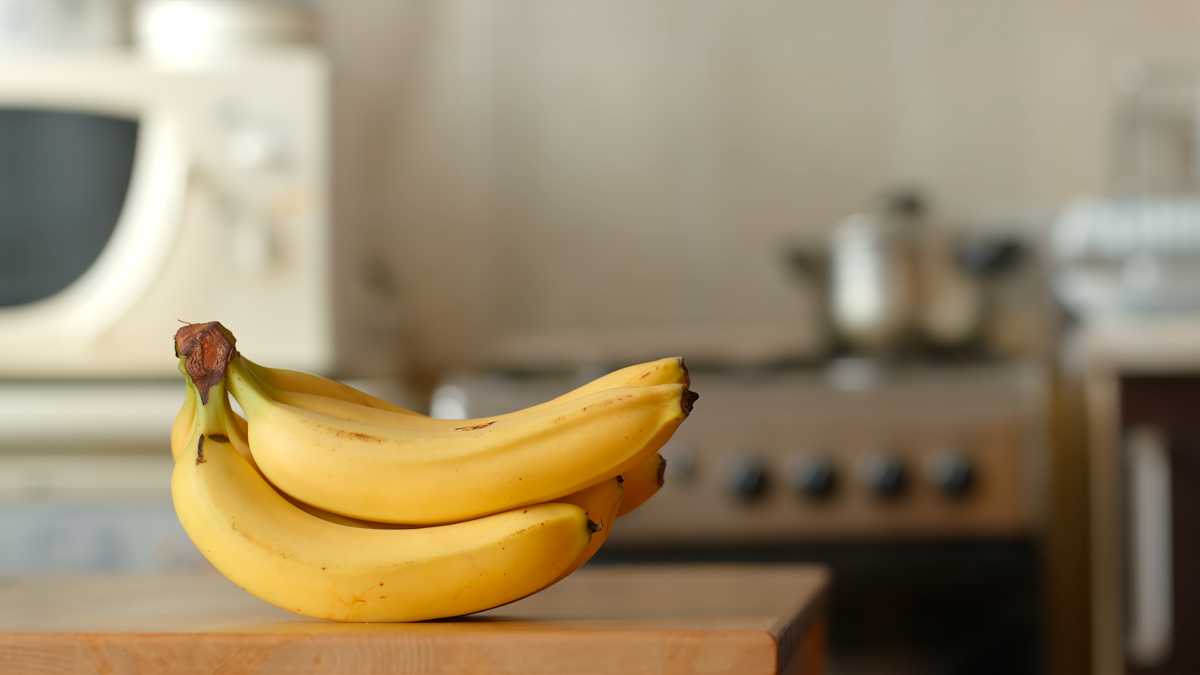Get rid of fruit flies with these simple methods
It’s never fun to have problems with fruit flies. Sometimes, there’s simply not enough time to clean the kitchen daily. Over time, this creates an ideal environment for fruit flies, as they love old food scraps.
Fruit flies aren’t automatically drawn to dirt, but a dirty indoor environment often contains leftover food or fruit. And in summer, there’s a risk that fruit flies may invade and take over your home.
Get Rid of Fruit Flies in the Kitchen
The first step is to use vinegar, dish soap, syrup, and water. Mix these liquids in a glass and leave it on the countertop overnight. The fruit flies will get trapped in the liquid during the night. In the morning, just throw out the contents and start cleaning.
Start by going through any food or fruit left out. Overripe fruit is particularly popular among fruit flies, so store it in the fridge.
Next, check your trash. Fruit flies thrive in your kitchen during the height of summer. During this time, you should try to keep as little compost indoors as possible. Take out the compost daily, even if it means a bit of extra work.
Now you can give the kitchen a thorough clean. Use a dedicated cleaner that is especially effective against fruit flies—but make sure it’s environmentally friendly.You should also go over everything you store in the kitchen. Sometimes we keep old bottles that contain traces of sugary liquids—something fruit flies love. If you must keep bottles in the kitchen, rinse them out thoroughly.
Fruit flies love to lay eggs in your kitchen, especially in the drain. Boil water and pour it down the sink. Repeat the process a few times to make sure there are no eggs left.
You can continue setting out a glass with vinegar, syrup, and water for a few days to ensure the flies don’t return, even after the kitchen is clean.
Getting Rid of Fruit Flies in Other Parts of the Home
Fruit flies sometimes invade other parts of your home. You can use the same method described above. However, there are a few other home remedies that are also effective.
Buy a lemon and cut it in half. Place the lemon halves in the oven and leave them there overnight.
In the morning, set the oven to 200°C (390°F). Wait about 10 minutes. Then open the oven door and let the lemon scent spread.
Fruit flies strongly dislike this smell and will leave immediately. An added bonus is that many people enjoy the citrus scent.
Finally, clean the oven, as lemon juice may have dripped onto the bottom. In some cases, this might not be necessary.
This method works well if you have an open floor plan. If you live in a larger home, the scent may not reach every room—like the bedroom, for example. In that case, place cold lemon halves in the bedroom. Even without heating, the scent is usually enough to make the flies leave.
You can also place a wine bottle in the bedroom with a small amount of wine left in it. The sweet scent will attract the flies, and once inside the bottle, they won’t be able to escape.
Ventilating the rooms where fruit flies are present can also help. They prefer warm and humid environments, ideally around 30°C (86°F), so airing out the space daily can make it less inviting.
Other Methods
The methods we’ve listed so far should resolve your issue. If not, hidden fruit or similar food waste may be the culprit. Here are a few more ideas:
There are dedicated traps available in stores designed specifically for fruit flies. Be cautious though—some traps are made in other countries. Always check the label to ensure they don’t contain substances harmful to people or the environment.
Another option is to mix vinegar and honey in a glass. The smell attracts flies, and the honey causes them to get stuck.
You can also get a carnivorous cactus, which naturally feeds on fruit flies. Fruit flies tend to hang around plants, though this is no guarantee that the cactus will catch them all.
Where Do Fruit Flies Come From?
People used to believe that fruit flies spontaneously emerged from the fruit itself, especially since they were often spotted near bananas. But in reality, many fruit flies enter your home as eggs already laid in the fruit.
As mentioned earlier, fruit flies like to lay eggs in your kitchen sink. They also commonly lay eggs inside fruit—especially in warmer countries. Some of these eggs survive the journey to Sweden, and when the fruit ripens or goes bad, the flies hatch.
This is why you should never leave old fruit out. The fruit doesn’t have to be rotten—just no longer fresh. When fruit starts to age, put it in the fridge.
What Is a Fruit Fly?
The fruit fly is a species found all over the world. It’s attracted to our waste and leftovers. Originally from warm climates in Africa, it has spread globally with human help. Fruit flies have been in Sweden for just over 200 years and are considered pests.
They don’t live very long—up to a month in ideal conditions. However, a single female can produce hundreds of offspring during her lifetime. That’s why, if you don’t clean properly, the problem can quickly become long-term.
Despite being pests, fruit flies have some useful purposes. They’re used as food for fish and some plants, bred under controlled conditions to suit these specific needs.
As mentioned earlier, keeping your home tidy, properly handling your waste, and putting away any food will help you avoid these pests. If you’ve done all that and still have problems, it may be time to call in professional help.
